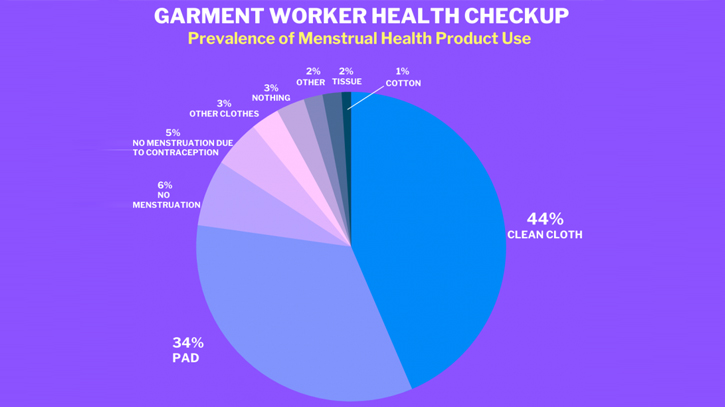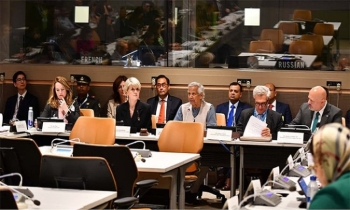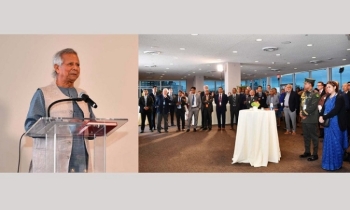78% female RMG workers now maintain proper menstrual hygiene
BI Report || BusinessInsider

Chart: Garment Worker Diaries
In Bangladesh, 78% female garment workers now maintain proper menstrual hygiene, according to an ongoing study being conducted by the South Asian Network on Economic Modeling (SANEM) and Microfinance Opportunities (MFO).
Of the 78% workers, 44% reported using clean cloth and 34% reported using sanitary pads during their periods.
The data presented in the study came from interviews conducted over the phone from a pool of 886 female workers employed in factories spread across the five main industrial areas of Bangladesh — Chattogram, Dhaka city, Gazipur, Narayanganj, and Savar.
Among the women who did not report following proper menstrual hygiene procedures, 3% said they used nothing at all during their periods, 2% said they used toilet paper, 2% said they used other material, and 1% said they used cotton.
The study also found that among those female garment workers to whom family planning was applicable — married and of reproductive age and ability — 71% reported employing active family planning strategies.
Of these women, 52% used some kind of contraceptive pill, 30% used some kind of contraceptive injection, and 9% used a condom.
Some 7% reported using “traditional methods” such as the withdrawal method, the calendar method, etc., while less than 1% reported using intrauterine devices (IUDs), permanent surgery, or implants.
SANEM and MFO have been paying close attention to the health of the garment workers in the study since the onset of the Covid-19 pandemic in Bangladesh.
The surveys being conducted are part of a project titled Garment Worker Diaries, which collects regular, credible data on the work hours, income, expenses, and financial tool use of workers in the global apparel and textile supply chain in producing countries.
The goal of the project is to collect and disseminate Diaries’ data in five producing countries by 2021. It is expected that the data will result in a major improvement in the transparency of global supply chains.
Garment Worker Diaries began in 2016 when Microfinance Opportunities, a global non-profit, in collaboration with local research firms in Bangladesh, India, and Cambodia, collected data from 180 women in each country every week for a year.
























